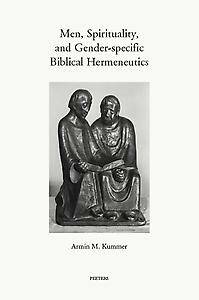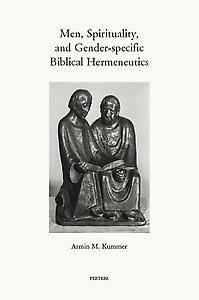
- Retrait gratuit dans votre magasin Club
- 7.000.000 titres dans notre catalogue
- Payer en toute sécurité
- Toujours un magasin près de chez vous
- Retrait gratuit dans votre magasin Club
- 7.000.0000 titres dans notre catalogue
- Payer en toute sécurité
- Toujours un magasin près de chez vous
Description
With the rise of feminism, issues of gender have become more important in many walks of life, but the specific problems and challenges faced by men have not attracted much scholarly interest in theology. This book looks at the challenges for men as described in popular and academic publications. Masculinity is understood as the open, performative, and transformative self-project of the individual person. As many contemporary men suffer from pathologies - loneliness, emotional repression, addiction, depression, alienation from self and others - that are often rooted in misguided masculinity codes that emphasize self-sufficiency, aggressiveness, and competition, they need to free themselves from such self-expectations and turn towards a spirituality of healing and flourishing. The reading of biblical texts can help them. Critical reading and group discussion of biblical stories allow men to examine and address fundamental questions about their own identity. To help men benefit from scriptural narratives, the author proposes a new method of biblical interpretation: Readers of biblical texts should pay careful attention to ideology, to the interests that have shaped the text, and to how the text can influence the reader today. Secondly, readers should scrutinize the text for its vision of the future and for messages of hope. Finally, readers should look in the text for instances of, and invitations to, personal change and transformation. The author critically reviews a small selection of men-specific readings of biblical texts by biblical scholars and demonstrates how biblical exegesis yield new insights by taking on board the key elements of a gender-specific biblical hermeneutics for men. This book adds to the tools of modern Biblical exegesis the lens of gender-specific reading strategies for working-age men. Situated in the borderlands of biblical and practical theology, it provides fresh impetus both to exegesis and to the pastoral care of men.
Spécifications
Parties prenantes
- Auteur(s) :
- Editeur:
Contenu
- Nombre de pages :
- 137
- Langue:
- Anglais
- Collection :
- Tome:
- n° 78
Caractéristiques
- EAN:
- 9789042939165
- Date de parution :
- 26-04-19
- Format:
- Livre relié
- Format numérique:
- Genaaid
- Dimensions :
- 157 mm x 239 mm
- Poids :
- 226 g

Les avis
Nous publions uniquement les avis qui respectent les conditions requises. Consultez nos conditions pour les avis.






